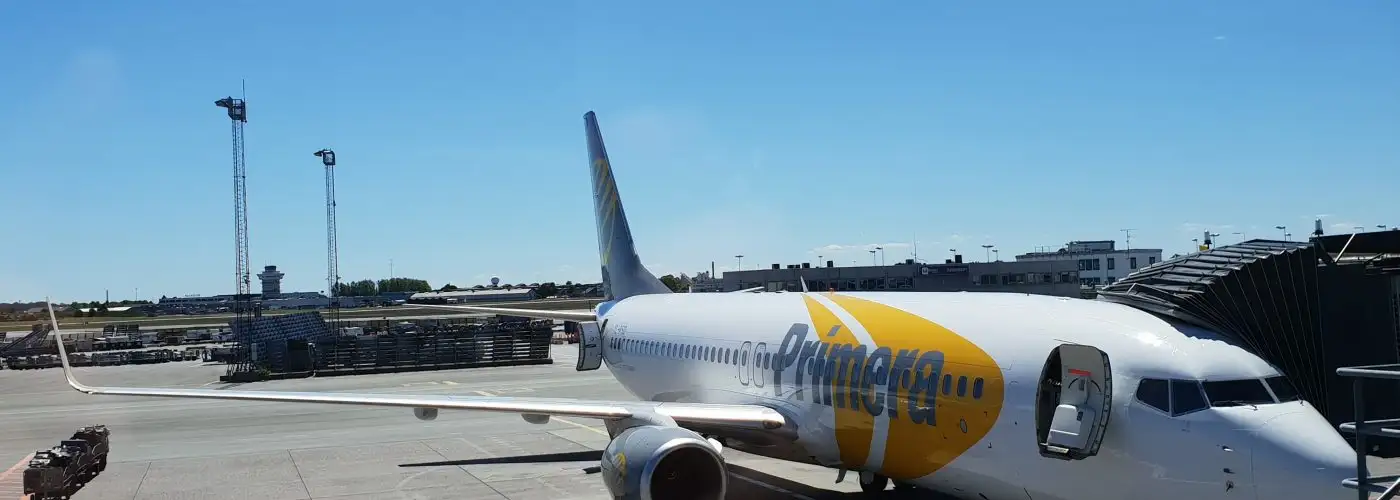The complete shutdown of Primera Air and now WOW Air are examples of the reality that an airline can abruptly fail. Without notice, even a large airline can shutter, leaving some passengers stranded away from home and others responsible for out-of-pocket costs for worthless tickets.
While a big U.S.-based airline hasn’t failed in recent years, financial analysts have said that Europe’s high number of low-cost startups (which are increasingly expanding to the U.S.) make those airlines’ survival questionable.
What You Need to Know When an Airline Fails
Although specific circumstances are unique in each case, you can see some patterns reoccur each time an airline fails. Here’s what you need to know about the potential threats of an airline faltering, and what an airline failure means for travelers.
Bankruptcy is not the same as airline failure.
Airlines can go bankrupt without failing, and they can fail without going bankrupt. Airlines that do go bankrupt have often used the Chapter 11 version of bankruptcy to restructure while remaining operational. American, Delta, and United have all gone through bankruptcy at least once without having to shut down operations. And many passengers probably couldn’t even tell.
Primera, on the other hand, truly failed, or defaulted. It wasn’t able to restructure its financial situation, so it just stopped operating. It did file for bankruptcy, but not all failed airlines go through that process. And as a traveler, default or failure is your real worry—not bankruptcy.
Many shaky lines find a “white knight” before they have to fold.
When a weak line faces ongoing losses and overwhelming debt, it often finds some stronger line to acquire its assets and merge operations. For example, rather than fold completely, now-defunct Trans World Airlines agreed to be bought out by American in 2001, and historic Pan American World Airways (Pan Am) was split between Delta and United in 1991. Most recently, Alaska bought the only sizable failing U.S. airline, Virgin America, in 2016 after outbidding JetBlue.
In those and other bail-outs, there are no stranded passengers or travelers stuck with worthless tickets. In fact, travelers on the failing lines typically retain even their frequent-flyer miles, absorbed into the program of the acquiring airline.
True shutdowns leave few options for travelers.
In a true default, however, airlines can leave travelers in the lurch. That’s what happened to Primera’s. In such a default, other lines typically offer reduced “repatriation” fares to stranded travelers. Travelers holding worthless tickets for future flights can request a refund if they bought tickets with a credit card directly from the airline, but those who booked with a third party or as part of a package deal like a tour will have to look to the operator. Unfortunately, those third-party-booked travelers might not find recourse.
Predicting an airline failure isn’t easy.
You’re largely out of luck when it comes to spotting a shutdown before it happens. Airlines themselves typically do their best to hide any financial troubles—Primera was expanding up until the month it shuttered. On the other hand, it is worth noting that financial analysts often wring their hands about the financial health of airlines that continue to operate. Specifically warning that a business model built on $99 transatlantic fares is not sustainable.
Insurance can help—but only if it’s the right kind.
Many trip-cancellation and interruption (TCI) policies include airline failure as a “covered reason” for cash recovery. But you’ll have to consider two caveats:
- Some policies specify “bankruptcy” as a primary covered condition even though failed airlines don’t always file. To be safe, buy a policy that specifies a failure or “default” rather than just bankruptcy.
- The insurance option you can pay extra for when you buy your ticket directly from the airline does not protect you if that airline fails. If the airline fails, so did the insurance policy they sold you. So, to be safe, buy TCI from a third-party independent insurance agency rather than from the airline: You’ll not only eliminate the risk of airline default, and you’ll also probably get a better deal.
The takeaway: No one has any idea when or where another airline may default—but it will likely happen, and these facts can help you avoid it. At present, the big U.S. lines are doing well, but if you’re considering flying with a small, low-fare startup airline in Europe or Asia, you might want to think twice, or at least consider purchasing TCI insurance.
Editor’s Note: This story was originally published in 2018. It has been updated to reflect the most current information.
More from SmarterTravel:
- Is There Finally Going to Be a New Low-Cost U.S. Airline?
- Could These 3 New U.S. Airlines Shake Up U.S. Travel?
- What to Do When an Airline Tries to Screw You
Consumer advocate Ed Perkins has been writing about travel for more than three decades. The founding editor of the Consumer Reports Travel Letter, he continues to inform travelers and fight consumer abuses every day at SmarterTravel.
We hand-pick everything we recommend and select items through testing and reviews. Some products are sent to us free of charge with no incentive to offer a favorable review. We offer our unbiased opinions and do not accept compensation to review products. All items are in stock and prices are accurate at the time of publication. If you buy something through our links, we may earn a commission.
Related
Top Fares From
Today's Top Travel Deals
Brought to you by ShermansTravel
Ireland: 9-Night Dublin, Kilkenny, Killarney, Galway...
Brendan Vacations
 vacation
$3875+
vacation
$3875+
Amsterdam to Copenhagen: Luxe, 18-Night Northern...
Regent Seven Seas Cruises



Ohio: Daily Car Rentals from Cincinnati
85OFF.com






